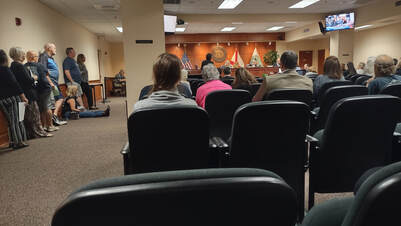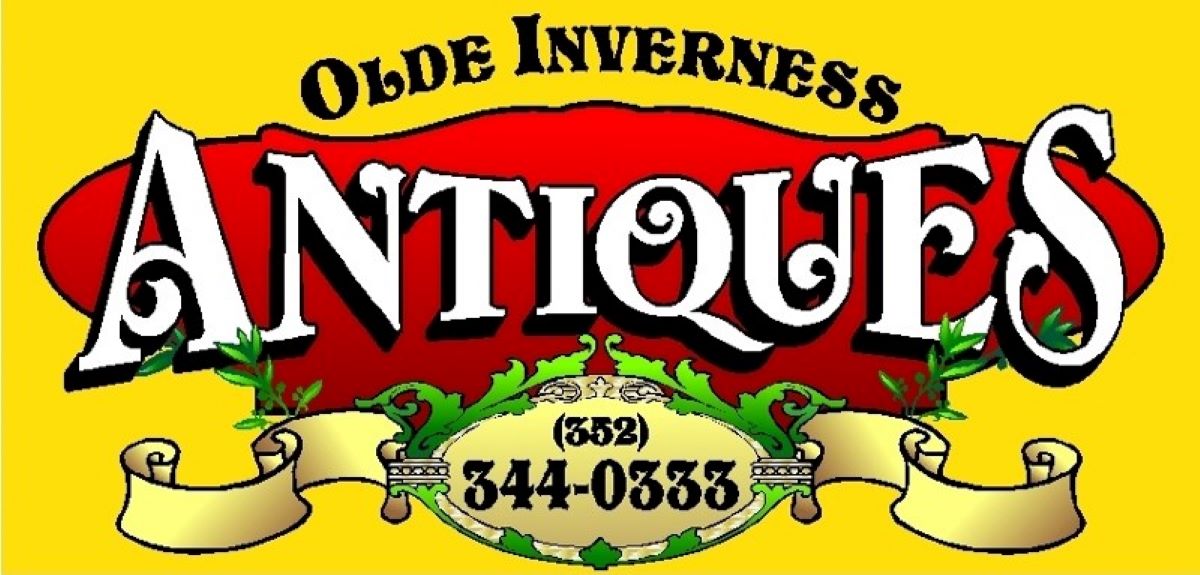 Welcome to a new little edition around here we call Government Geek Wednesday. As you can see from today’s stellar photo, I spent much of Tuesday afternoon perched in my usual locale watching a truly outstanding County Commission meeting. Commissioners deftly handled one challenge after another, taking deep dives into issues looking more unified, maybe not so much with the votes but their approach to solving problems.
Like I said, government geek material. Utopia for a guy like me. The highlights: — Inverness Village 4 residents showed up and were very polite but insistent that the county not give up on them despite a report that put a road/drainage assessment out of reach. Commissioner Holly Davis patiently answered questions and brought commissioners up to speed on the background. There wasn’t much discussion. I sense that everyone involved is ready for a break in the intensity of this conversation. — Commissioner Diana Finegan’s illegal immigration resolution appears to have board support, but not this week. Finegan and Chairman Ruthie Davis Schlabach got into a little dust-up over whether Finegan turned in her agenda paperwork in time or whether Schlabach somehow interfered. The entire exchange was uncomfortable and, thankfully, ended quickly. Finegan agreed to bring the matter back in two weeks when it’s on the agenda properly and we can all read the resolution ahead of time. Schlabach and Commissioner Jeff Kinnard said they’ll support it. Davis said she would as well, though she considered the resolution a waste of time. —County Administrator Steve Howard not only received a $10,000 pay raise, but commissioners also want to negotiate a three-to-five-year contract with him. Commissioner Rebecca Bays said getting an administrator of Howard’s expertise for less than his new salary of $215,670 is unlikely. You’re not going to find a soul in this county who has a negative thing to say about the job Steve Howard has done in his first year. Vacant positions filled, employee morale up, long-stagnant projects given life. Howard has an infectious get-it-done approach that commissioners and the public find invigorating. — Meeting agendas are rarely stacked early on with scheduled presentations, but this one was. Schlabach’s State of the County address at 1:15 p.m. was followed by five time-certain presentations, including a fascinating hour on taxes that I’ll get to in a minute. That meant a substantial delay in the 1:30 p.m. public comment. Rather than take a seat, of which there were plenty, folks along the left wall stood there the entire time (one person finally flopped to the floor) until all those presentations concluded. When the public comment opened, two of the regulars were somewhat indignant about having to wait while the board conducted its business. To which I say: Get over yourself. — I’m going to break this down much more later, but attorney Heather Encinosa gave a truly impressive explanation of revenue sources available to the county outside the traditional property tax. The county realizes it has a dilemma: raising money for needed projects without tapping into the annual millage. Not only is that unpopular, there’s an annual cap of 10 mills; the county’s rate is 8.93 mills, so you see the issue. However, there’s a separate property tax structure with its own 10-mill cap, and that’s a Municipal Services Taxing Unit (MSTU, not to be confused with an MSBU. Look, these aren’t my terms). The county could create MSTUs for law enforcement and residential road resurfacing, for example, effectively swapping millage from the general fund to this special tax. What, you may ask, is the advantage of that? Seems like just a shell game. Follow me here. Unlike the regular millage, which covers everything the government does, an MSTU is specific. And that’s exactly where you’re going to hear talk about the law enforcement shift in particular. Right now, the sheriff’s office takes 45% of the county’s general fund. That’s an astounding number. And once the budget is approved, he can do what he wants with it. There is zero accountability to the public. If the county decides to shift that tax support from the general fund to an MSTU, it forces the sheriff to take his case directly to taxpayers. It’s not a referendum, but an MSTU definitely places a stronger focus on what exactly the tax is used for. I warned you. Icky government geek material. Just my kind. Join the discussion on our Facebook page. Comments are closed.
|
AuthorMike Wright has written about Citrus County government and politics for 36 years. Archives
July 2024
|



















